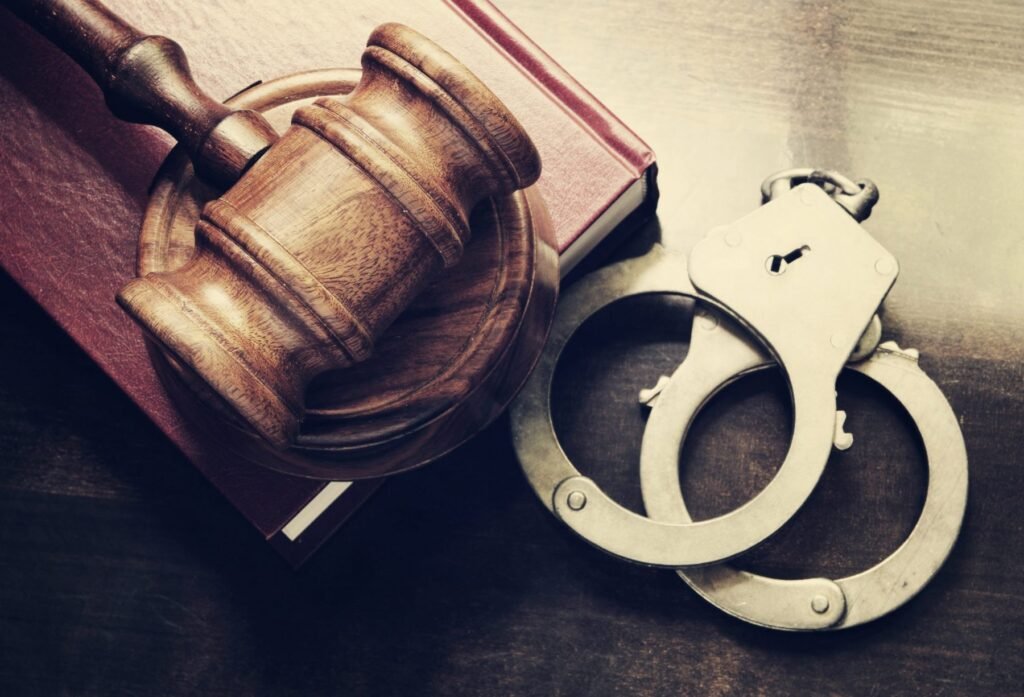Discovering that your child has been charged with a juvenile offense can be an incredibly stressful experience. It’s natural to worry about how this will affect their future—education, employment, and their overall path in life. However, understanding the juvenile justice process in Florida and knowing the steps to protect your child’s rights can help you navigate this challenging time with greater confidence. An experienced criminal defense attorney in Florida can provide the guidance and advocacy needed to protect your child’s future and ensure their rights are fully upheld.

This guide aims to provide clear, practical advice on what to do after a juvenile charge and how to safeguard your child’s future in the best possible way.
Get the Legal Guidance You Need
📞 Call: 772-828-1143
📧 Email: info@jordizaragoza.com
📍 Visit: 130 S Indian River Dr, Suite 202, Office 218, Fort Pierce, FL 34950
Understanding Juvenile Charges in Florida
Juvenile charges typically involve offenses committed by individuals under the age of 18. Florida’s juvenile justice system focuses more on rehabilitation rather than punishment, recognizing the potential for young people to change and grow.
Common juvenile offenses range from minor infractions, such as curfew violations, to more serious charges like theft, drug possession, or even felony offenses. The court proceedings differ significantly from adult criminal trials, often emphasizing treatment programs, community service, and education.
Step 1: Know the Importance of Immediate Legal Support
Time is critical after a juvenile charge. Early intervention by a knowledgeable criminal defense attorney experienced in Florida’s juvenile system can significantly impact the case’s outcome. An expert lawyer can:
- Explain the charges clearly to both parents and the child
- Advocate for alternatives to detention
- Help negotiate diversion programs or other rehabilitative options
- Protect the child’s rights throughout the process
Seeking legal advice promptly allows you to understand all available options, which can prevent more serious consequences down the road.
Step 2: Understand Your Child’s Rights in Juvenile Proceedings
Your child has specific rights in the juvenile justice system, including:
- The right to remain silent
- The right to an attorney during questioning and court hearings
- The right to a fair hearing before a judge
- Protection against self-incrimination and unlawful searches
Ensuring these rights are respected is essential to preventing unjust treatment or mistakes that could harm your child’s record and future.
Step 3: Explore Alternatives to Formal Adjudication
Florida’s juvenile system often allows for alternatives that avoid a formal court trial. Programs like diversion, probation, or community service focus on rehabilitation and education rather than punishment.
These alternatives can:
- Help keep your child out of detention centers
- Prevent the creation of a permanent criminal record
- Provide counseling, mentorship, or skill-building opportunities
Discussing these options with a skilled defense lawyer can increase the chances of your child being offered such programs, helping protect their future.
Step 4: Consider the Long-Term Impact on Your Child’s Record
One of the biggest concerns after a juvenile charge is the impact on your child’s record. Juvenile records can sometimes be sealed or expunged under Florida law, meaning they are not publicly accessible and won’t necessarily affect future schooling or employment.
An experienced attorney can guide you through the sealing and expungement process, which can be critical in helping your child move forward without the burden of a public record.
Step 5: Support Your Child Emotionally and Academically
Facing legal issues can take a toll on a young person’s mental and emotional health. It’s important to provide consistent support during this time and encourage positive activities, education, and counseling.
Keeping your child engaged in school and extracurriculars can reduce the risk of future troubles and reinforce a positive trajectory.
Step 6: Stay Informed and Attend All Court Hearings
Staying involved and informed about your child’s case is vital. Make sure you attend all court dates and meet deadlines for paperwork or compliance with probation or other conditions.
Being proactive shows the court that you and your child are serious about addressing the issue and complying with legal requirements.
Why Early and Expert Legal Help Makes a Difference
The juvenile justice system can be complex and fast-moving. Early legal guidance helps:
- Prevent unnecessary detention
- Access rehabilitative programs
- Protect your child’s rights and future opportunities
- Navigate court procedures with confidence
If you want to ensure the best possible outcome for your child, reaching out for professional legal advice is an important step.
Need Help Navigating Juvenile Charges?
If your child is facing juvenile charges in Florida, having knowledgeable legal support can help protect their future. Understanding the process, knowing your rights, and exploring all available options can make a meaningful difference during this difficult time.
For those seeking guidance or more information, reaching out to an experienced criminal defense attorney is a smart move.
You can contact the office at:
- Phone: 772-828-1143
- Email: info@jordizaragoza.com
- Address: 130 S Indian River Dr, Suite 202, Office 218, Fort Pierce, FL 34950
Frequently Asked Questions (FAQs)
1. What happens after a juvenile is charged in Florida?
After charges, the juvenile will likely have a detention hearing followed by a series of court appearances. The focus is usually on rehabilitation rather than punishment.
2. Can juvenile records be sealed or expunged?
Yes, Florida law allows for sealing and expungement of juvenile records under certain conditions, which helps protect your child’s future.
3. Are there alternatives to going to juvenile court?
Yes, diversion programs and other alternatives exist that emphasize rehabilitation and can help avoid formal court proceedings.
Final Thoughts
A juvenile charge can feel like a daunting setback, but it doesn’t have to define your child’s future. With the right knowledge, support, and timely legal intervention, you can help your child overcome this challenge and continue toward a positive, productive life.
Being informed and proactive is key—your child deserves every opportunity for a fresh start and a successful future.
